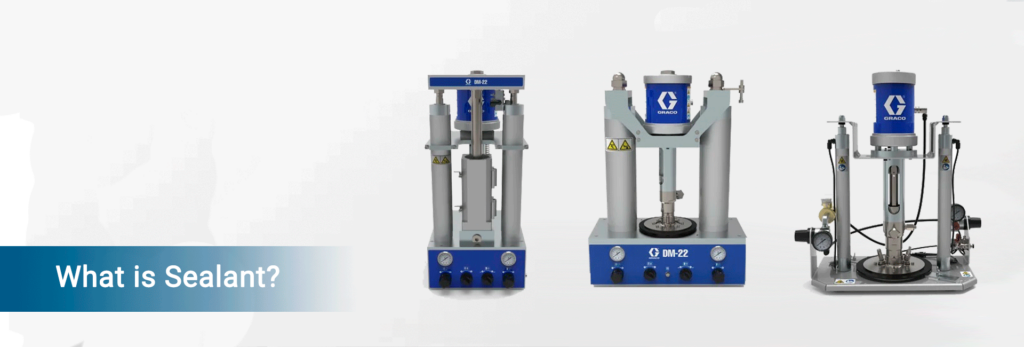In this blog, you will learn everything about car sealant, its types, and its application in the industry.
Everyone wants their shiny new paint job to last, right? Car wax is like a quick fix – it shields your car from scratches and swirls, but the magic wears off in a few months, depending on the wax. Now, there’s a tougher option in town – car sealant. Paint sealants are like armour for your car’s paint.
They’re strong and last a long time, shielding your ride from nasty stuff like acid rain and harsh sunlight. But how do they work? Well, this is a mix called synthetic polymers that form a super-thin, super-strong shield. When your car gets hit with dirt, sap, or bird droppings, these synthetic polymers jump into action to prevent those yucky things from messing with your paint job.
What is Sealant?
Sealant is a substance which is used to block the passage of fluids through openings in materials. They are commonly used in construction to fill gaps between materials. Modern sealants are made of an elastomeric compound for flexibility. They are usually fillers made of polymers.
There are many different sealant products available, each designed for a different application and sealant purpose, including structural applications or bonding façade elements together.
Types of Sealant
When it comes to types of sealant in automotive, there’s a variety of options to consider, each with its own strengths and weaknesses:
- Water-Based Latex: These are popular because they’re easy to apply and stick well to most surfaces. However, they can shrink and pull away from the surface, creating gaps that allow water in.
- Acrylic: UV stable and suitable for exterior applications, but they can be tricky to apply and don’t handle significant movement well.
- Butyl: Adheres well to various surfaces but can be challenging to apply due to its stringy consistency. It’s not great for demanding automotive applications due to poor abrasion resistance and limited movement accommodation.
- Polysulfide: Offers excellent flexibility and durability, even underwater. However, it’s more expensive and may contain higher levels of VOCs.
- Silicone: Known for excellent thermal resistance and adhesion but prone to vandalism and dirt collection. It can also stain certain substrates, making primers necessary in some cases.
- Polyisobutylene: Similar to natural rubber but more durable, they are often used for insulating glazing units due to low permeability.
- Polyurethane: Sticks well to different surfaces with minimal preparation and offers excellent resilience to abrasion and shear forces. It’s a common choice for automotive applications due to its strong adhesion and movement capability.
Each type of sealant has its own set of properties and is suitable for specific automotive applications based on factors like durability, adhesion, and resistance to environmental factors.
When choosing a sealant for car maintenance, consider the built material of your vehicle and choose a product that suits its needs. Some sealants are cheaper, while others cost more. Depending on your budget, you might want to start with a cheaper option before trying a more expensive brand. Whether it’s for protection from rain or UV light or just for a shiny finish, pick a product that meets your needs. Automotive sealants play a key role in long-term vehicle maintenance, providing both protection and performance.
Sealant Application System Offered by Patvin
Patvin is well-known in the global automotive industry for its gluing and sealing solutions. Whether you need precision metering equipment, advanced robotics technologies, or specialized solutions, Patvin has it all. The pumping, metering, and dispensing solutions come with state-of-the-art control for precise applications. Additionally, visual and laser quality control systems are available to make sure the bead quality meets your specifications. Here are some of the state-of-the-art sealant application systems by Patvin:
- Mastic Sealant Application
- Structural Adhesive Application
- Crash Sealer Application
- Anti-Flutter Sealant Application
- Hem Flange Bonding
- Seam Sealer Application
- Cosmetic Sealer Application
- UBS / UBC Sealer Application
- Anti-Chip / Rocker Panel Application
- Roof Ditch Sealer Application
- Liquid Applied Sound Deadener
- Glass Gluing System
- Urethane Supply System
- Liquid Gasketing Application
FAQs
The main sealants and adhesives used in car shops are formulated from acrylic esters, epoxies, polybutadienes, polyurethanes, and PVC/epoxy blends.
A car body sealant is a single-component, polyurethane seam sealer. It rapidly cures, creating a permanent and flexible seal tailored for sealing both interior and exterior automotive and RV body joints and seams.
All-Purpose Silicone 1 sealant is a 100% silicone and fully weatherproof sealant, perfect for areas exposed to various weather conditions. This type of sealant is ideal for windows, doors, siding, trim, moulding, baseboards, vents, basements, attics, and around wires and pipes.
FAQs
A sealant is a substance used to block the passage of fluids through the surface or joints protecting surfaces and preventing leaks. In automotive industries, sealants are very necessary for vehicle integrity and performance. In short, when people ask “what is sealant used for,” the answer is simple — to prevent leaks, seal joints, and protect structures from moisture, air, and other external elements.
Sealants are very necessary in vehicles for durability and performances. They prevent moisture and contaminants from entering critical areas which avoids corrosion and damage, extending a vehicle’s lifespan by sealing gaps and joints securely.
1. The 3 types of sealants used in automotive applications include:
- Silicone Sealants
- Polyurethane Sealants
- Acrylic Sealants
1. To choose the right sealant, consider:
- Application type
- Material compatibility
- Durability
- Flexibility
- Environmental conditions
- Purpose
- Sealant Types
- Manufacturer Recommendation
Sealants in automotive are applied by cleaning surfaces, then evenly spreading it and allowing it to cure, thus creating a protective barrier to prevent any leaks to ensure durability and protection from corrosion.



